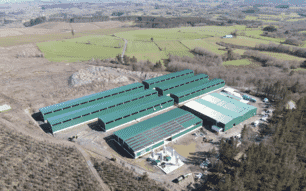The article forms part of the most comprehensive and authoritative reviews on plant metabolic engineering to date and describes some of the achievements to date, as well as the research bottlenecks and future direction. It also highlights how plant lipid metabolism is significantly more complicated than previously imagined.
In the article, the Lipid Metabolism and Signalling Group at Rothamsted Research, who receive strategic funding from BBSRC, describe how the emerging science of synthetic biology provides a new paradigm for plant lipid engineering, allowing scientist to build a bespoke systems by re-designing metabolic pathways from scratch to create entirely new biosynthetic pathways de novo within cells, thereby enabling production of valuable molecules.
Lead author Dr Richard Haslam said: "This approach may lead to crops with novel traits, including seed oils with greater nutritional potential."
One of the key applications for this work is to create a more sustainable source of omega-3 long-chain polyunsaturated fatty acids (LC-PUFAs), which have been strongly linked with improved cardiovascular health and cognitive development. As well as the nutrition and health benefits, the production of plant-based methods to produce LC-PUFAs may help reduce the problems for aquaculture who have to turn to less sustainable sources of LC-PUFAs in fishmeal, as sea stocks of oily fish deplete. Current plant sources do not provide the right type of LC-PUFAs in the right quantities that are bioavailable to humans .
Group leader Professor Johnathan Napier said: "the current systems of using fish oil and meal in aquaculture means fish-farming is the very definition of unsustainability and there is a real need to produce sustainable terrestrial sources of these healthy oils.
Further details of this work can be found here [http://www.rothamsted.ac.uk/Content.php?Section=SuccessStories&Page=Oils]
Rothamsted Research have amassed a world-leading team in plant lipid engineering scientists and their collective expertise put Rothamsted at the forefront of a global imperative to produce a viable terrestrial alternative to fish oils.
Plant Oils Helping to Relieve Pressure on Fish Stocks
UK - In a new article, published in this months Plant Biotechnology Journal, scientists at Rothamsted Research describe their innovative research to unlock plant lipid pathways, to produce oils with greater nutritional potential as well as helping to address issues of fish stock sustainability.
by Lucy Towers



